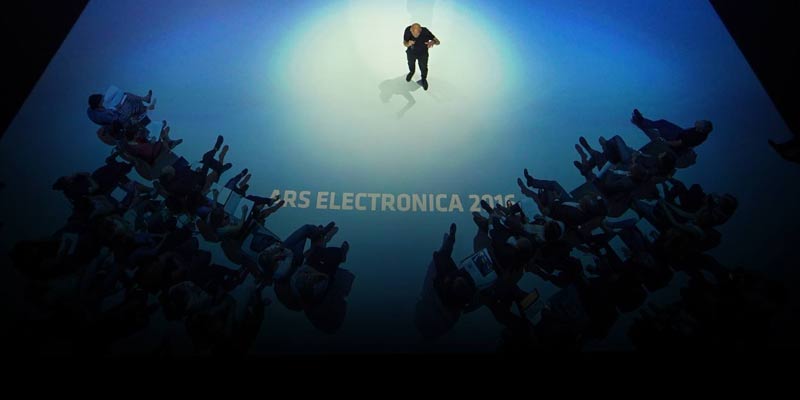Expert Study of the Ars Electronica Futurelab
Article on the Ars Electronica Blog
(Linz, July 18, 2019) How do traffic policemen work in a world where cars drive themselves? What can driving instructors expect when a driving licence is no longer needed for a self-propelled car? The Ars Electronica Futurelab researched these questions and more in an expert study for the Austrian Road Safety Board (KFV). The focus was on future transport professions, especially road transport in the areas of road safety, logistics and mobility. The main concern: How are traffic (safety) and mobility-related occupational groups and professions changing in the wake of the increasing automation of mobility, digitization and sharing economy? And what new job profiles can emerge?
Trends that can be read from the study point to an increasing importance of basic digital knowledge and social skills. People who combine knowledge from different fields have an advantage. Continuing education and learning are also high on the list of priorities for the future.
“Modern driver assistance systems and automatic driving can and will probably have an impact on far more mobility and road safety related areas than driver training,” explains Klaus Robatsch, Head of Traffic Safety at KFV. The implementation of the study “Occupations of the Future” is the logical consequence of these considerations.
Four scenarios, 60 occupations
Based on current technological developments in the transport sector, the Ars Electronica Futurelab developed four future scenarios for the year 2050, in which more than 60 different job profiles, CVs, competence compasses and activity logs are presented. Two fundamental premises make the game of thoughts possible: first, Level 5 automation in 2050 is feasible without any problems and second, CO2 emissions can be controlled to an extent that still allows traffic on a larger scale.
“These scenarios are not meant to be either-or,” reveals Maria Pfeifer, the researcher in charge at the Ars Electronica Futurelab. “They help us to illustrate the diversity of possibilities and show how professions can change with changing framework conditions. Thus, each of the four scenarios pushes one possible aspect of the future to the top: from semi-automated routes with high human control to full automation and total monitoring, so as not to burden the environment too much, everything is included.
First forecasts: Digital basic knowledge and lifelong learning
Trends that clearly emerge from the study are the increasing importance of basic digital knowledge and social skills. So-called hybrid skills will also become increasingly important in the future – those who can combine knowledge from different fields will have an advantage. Continuing education and never-ending learning are also high on the list of priorities for the future. This has consequences: The study shows above all that the future brings with it many challenges for the education sector, common corporate cultures and our handling of new technologies in society.
Road Safety Board of Trustees
The KFV (Kuratorium für Verkehrssicherheit) was founded in 1959 as an independent association and has been committed to accident prevention and increasing safety in Austria for more than 60 years. Today, the physical and material integrity of people is at the centre of its activities. The fields of activity of the KFV include the prevention of road traffic accidents, household, leisure and sports accidents as well as property protection.
Ars Electronica Futurelab
The Ars Electronica Futurelab was initiated in 1996 as both a studio and laboratory. Since then, it has been the artistic-scientific think tank, research and development engine of Ars Electronica. Here, the team develops innovative prototypical sketches of the future that serve both as a basis for discussion and an invitation to participate in a broad discourse on topics of relevance to the future. The Ars Electronica Futurelab collaborates with partners from industry, the creative sector, the arts, academia and education around the world.
http://www.flickr.com/photos/arselectronica/48313177197/
Study for the KFV / Photocredit: rawpixel, Ars Electronica Futurelab / Printversion
http://www.flickr.com/photos/arselectronica/48313063101/
Study for the KFV / Photocredit: rawpixel, Ars Electronica Futurelab / Printversion
http://www.flickr.com/photos/arselectronica/48313177292/
Study for the KFV / Photocredit: rawpixel, Ars Electronica Futurelab / Printversion

